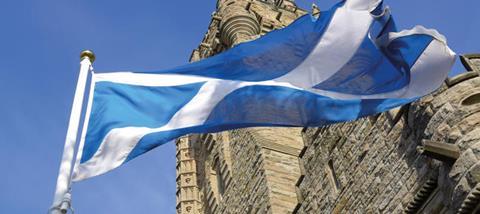
The Scottish Household Survey saw 47.3% respond ‘none’ when asked about their faith. Five years ago the figure was 40%.
The Church of Scotland is still the most popular denomination in the country, with 27.8% of the population identifying themselves as part of the Church.
Rev Colin Sinclair, convener of the Mission and Discipleship Council at the Church of Scotland, told Premier that the numbers ‘indicate a trend where people are less keen to publicly identify with an institution, but that doesn’t mean they’re less interested in faith.’
A second recently published survey from Transforming Scotland found that 55% of Scots have a favourable view of Christianity, and more than half believe the faith has made a difference to their lives.
Transforming Scotland say the research, conducted by the Barna Group, is ‘one of the most comprehensive studies of Christianity and Christian mission in Scotland’.
Transforming Scotland’s Alan MacWilliam said their research showed ‘a significant number of the Scottish public think the Church is a good thing for a community, because it strengthens and cares for those within it, and acts as a positive influence for young people’.
He said it was ‘hugely encouraging’ that the Church is viewed as bringing a ‘positive contribution to society’.
The research also showed that three-quarters of church leaders are optimistic about their work in Scotland and younger age groups are more receptive to issues around faith.
Writing on the Premier Christianity blog, the moderator of the Free Church of Scotland and member of the Transforming Scotland team, David Robertson, said that with regard to morality, there had been ‘a general dumbing down’ in Scotland. ‘Things that would have been unthinkable a decade ago (such as same-sex “marriage”) have now become the norm of the new morality’, he said.
‘In a hostile and increasingly militant secularist environment, traditional, liberal, nominal Christianity cannot survive. But those churches that have deep roots in the gospel will, I believe, see growth and renewal.
‘So we have a paradox. We have an increasingly atheistic secularist culture, marked by a rapid decline in Churchianity, along with an increasingly alive and growing biblical Christianity. It is the latter that turned the Roman empire upside down and indeed turned Scotland upside down before. All we can pray is “Lord, do it again”!’

























